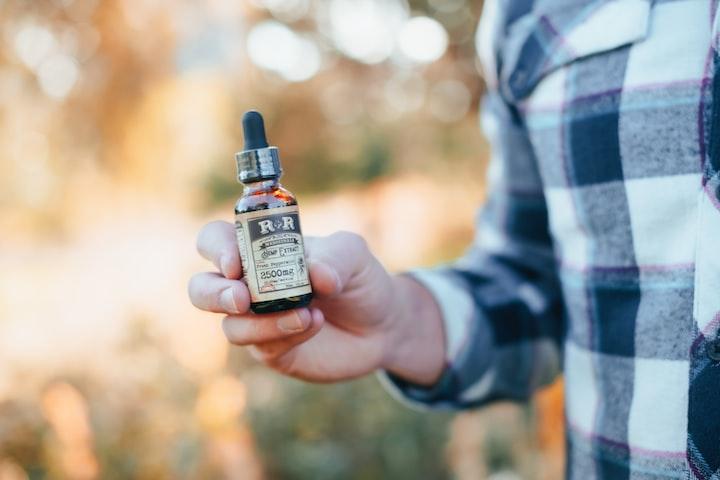Anxiety is a normal emotion that everyone experiences at some point in their lives. It is a feeling of worry, nervousness, or unease about something that may happen in the future. Everyone has different levels of anxiety and what may trigger one person’s anxiety may not trigger another person’s anxiety. There are many different treatment options for anxiety, including both medication and therapy. Some people prefer to use natural remedies for their anxiety, as they may have fewer side effects than medication.
There are several different types of natural anxiety remedies available. Some common ones include herbs such as passionflower or valerian root, omega-3 fatty acids, and probiotics. Passionflower and valerian root are often used to treat insomnia and can be found in supplements or teas. Omega-3 fatty acids are found in fish oil supplements and can also be taken in capsule form. Probiotics are live bacteria that are good for gut health and can be found in yogurt or supplement form.
Herbs such as passionflower or valerian root may help to reduce anxiety by promoting relaxation. Omega-3 fatty acids can help to reduce inflammation throughout the body, which may help to lower levels of stress hormones like cortisol. Probiotics can help to improve gut health.
Kava
Kava has been used as a ceremonial drink in the Pacific Islands for centuries. It is prepared by grinding the dried roots of the plant into a powder, which is then mixed with water or coconut milk and drunk.
Kava is known for its calming effects, and it has been traditionally used to treat anxiety, insomnia, and stress-related disorders. Some studies have shown that kava may be effective in treating symptoms of generalized anxiety disorder (GAD), but more research is needed.
Kava is generally considered safe when taken in moderation, but it can cause some side effects including nausea, vomiting, dizziness, and liver damage. It should not be taken if you are pregnant or breastfeeding, or if you have liver disease or any other health condition that could be aggravated by kava.
Passion flower
Passion flower has been used for centuries to treat a variety of ailments, including anxiety. Passion flower extract is thought to work by increasing levels of gamma aminobutyric acid (GABA) in the brain. GABA is a neurotransmitter that helps regulate nerve activity and promotes relaxation.
A number of studies have shown that passion flower can be effective in treating anxiety. One study found that passionflower was as effective as oxazepam (a medication used to treat anxiety) in reducing symptoms of generalized anxiety disorder (GAD). Passionflower was also found to be helpful in treating other types of anxiety disorders, such as post-traumatic stress disorder (PTSD), social anxiety disorder, and panic disorder.
If you’re considering taking passionflower for your anxiety, it’s important to talk to your doctor first. Passionflower can interact with some medications, so it’s important to make sure it’s safe for you before taking it.
Valerian
In ancient Greece, valerian was known as Phu and was used as a perfume. The Romans believed that valerian could guarantee a good night’s sleep and therefore included it in the composition of the heady wine called Mulsum. This wine was given to gladiators before they entered the arena to help them face their opponents with courage. Valerian is also mentioned by Pliny the Elder and Dioscorides. In the Middle Ages, its use became more frequent particularly for its vertigo-relieving properties. It was also used to ease dental pain and mitigate emotional outbursts such as anger or crying.
The name “valerian” comes from the Latin verb valere which means “to be healthy.” This likely refers to its traditional use as an herbal medicine for various disorders such as insomnia, anxiety, headaches, muscle pain, and menstrual cramps .
Valerian root contains many compounds including actinidine, alpha-pinene, atropine, beta-bisabolene, beta-pinene.
Chamomile
Chamomile (Matricaria chamomilla) is a dried flower that can be found pre-packaged at most health food stores. When brewed as a tea, chamomile is thought to be a relaxant, can be helpful in restoring insomnia, and be helpful in managing anxiety disorders. Chamomile tea infusion has fewer risks than many other herbal treatments and medications for anxiety disorders.
Lavender
Lavender oil is thought to work by disrupting the body’s stress response, which can help to reduce anxiety symptoms. It is also said to promote restful sleep, which can be helpful for people who struggle with insomnia or other sleep disorders. When used topically, lavender oil is thought to have a soothing effect on the skin, which can help to reduce tension headaches or muscle aches associated with stress.
If you’re looking for a natural way to reduce stress and anxiety, consider using lavender oil. Whether you use it in an diffuser or apply it topically, lavender oil may help you find some much-needed calmness and peace of mind.
Lemon balm
Lemon balm has been used for centuries to treat a variety of conditions, including anxiety, insomnia, indigestion, and cold sores. Some studies have shown that lemon balm may be effective in reducing anxiety and promoting sleep. Lemon balm is generally considered safe when taken in small doses for a short period of time. However, there is some concern that it may interact with certain medications or worsen conditions such as thyroid disease or Alzheimer’s disease.
